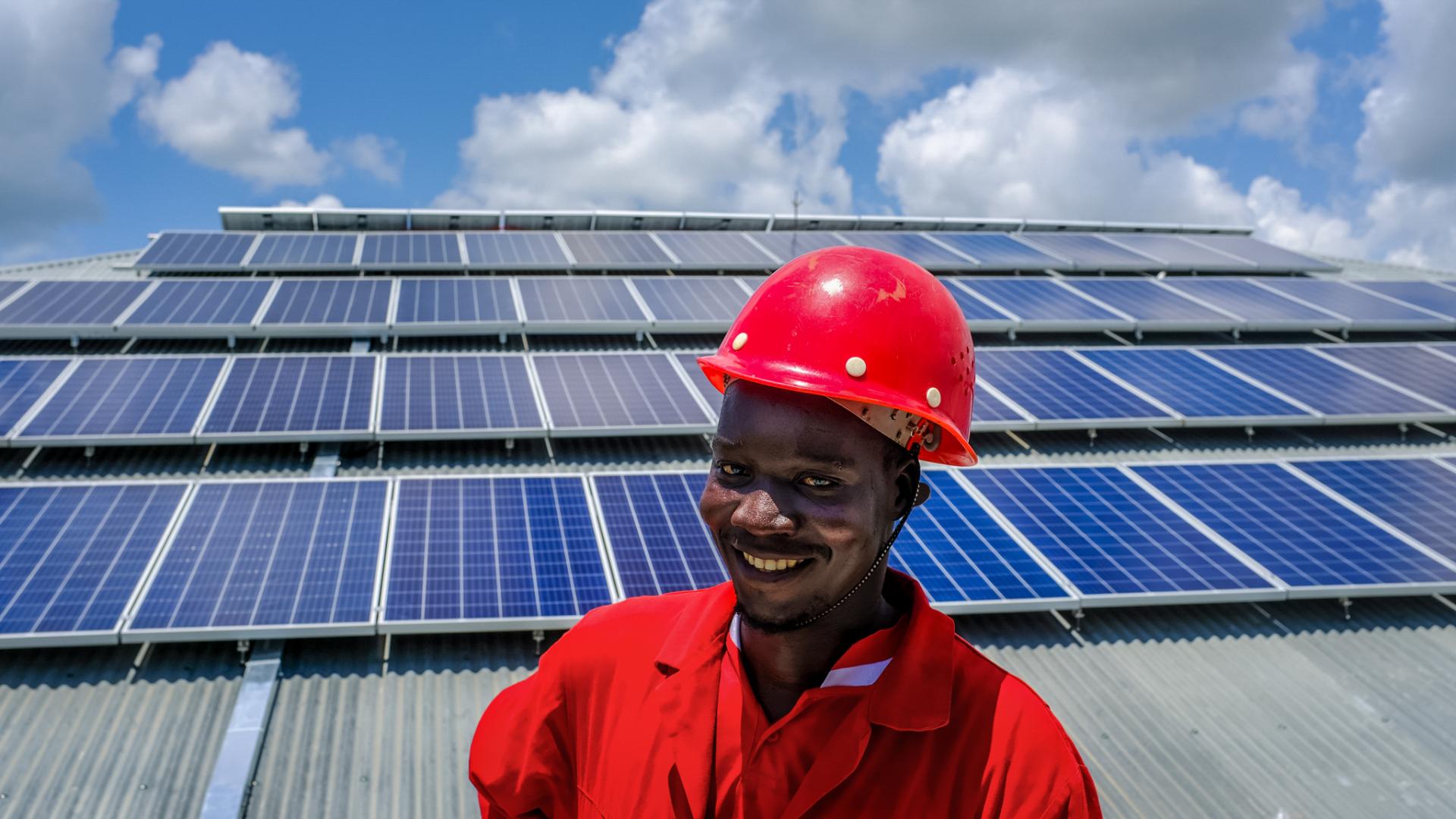
New York – Against the backdrop of a global energy crisis and worsening climate emergency, today the UN took a major step to catalyse the large-scale action and support needed for the transition to clean, affordable energy for all and net-zero emissions, with the launch of a Plan of Action by some thirty leading organizations comprising “UN-Energy”.
Speaking of the interlinked triple crises of energy, food and finance arising from the war in Ukraine, UN Secretary-General António Guterres recently stated that “we can maximize this moment to push for the transformational change our world needs.”
He added that “now is the time to turn this crisis into an opportunity,” to work towards progressively phasing out coal and other fossil fuels, and accelerating the deployment of renewable energy and a just energy transition, to address our worsening climate emergency.
An Energy Compact Action Network was also launched to match those governments seeking support for their clean energy goals with those governments and businesses that have pledged over $600 billion to support these commitments.
Coalitions were announced to support energy access and transition in Nigeria and the city of Santiago, Chile, showcasing the Network’s potential, as well as to advance or expand coalitions supporting green hydrogen and a stronger role for women in leading and benefiting from the energy transition.
Mr. Liu Zhenmin, Under-Secretary-General of the UN Department of Economic and Social Affairs and Secretary-General of the 2021 High-level Dialogue on Energy, stated:
“The Global Roadmap that emerged from the High-level Dialogue calls for strengthened efforts by the UN system supported by UN-Energy, including the creation of a global multi-stakeholder Energy Compact Action Network. I welcome today’s launch of the UN-Energy Plan of Action and the Network. This will help us sustain the momentum by generating concrete action towards clean and affordable energy and net-zero emissions.”
Foundation for collective work
“Especially at this crucial time, I am pleased to launch the UN-Energy Plan of Action. The current context has led to a wider understanding of how energy underpins the entire 2030 Agenda. It is paramount that the commitments taken at the 2021 High-Level Dialogue on Energy and COP26 are translated into actions on the ground — especially in support of the most vulnerable,” said Mr. Achim Steiner, Administrator of the UN Development Programme (UNDP) and Co-Chair of UN-Energy.
“The UN-Energy Plan of Action is our collective response to today’s global energy and climate challenges. As part of this, UNDP is stepping up its energy work to support countries in achieving a just energy transition, helping them advance progress on the Sustainable Development Goals while tackling the climate crisis,” he added.
The UN-Energy Plan of Action Towards 2025 rolled out today sets out a framework for collective action by nearly thirty UN and international organizations — in order to achieve the massive pledge they made at the time of the High-level Dialogue.
In line with the milestones set out in the Global Roadmap, by 2025, UN-Energy committed to support, facilitate and catalyse, inter alia, 500 million more people to gain access to electricity, and 1 billion more people to gain access to clean cooking solutions, as well as a 100 per cent increase in renewables capacity globally, no new coal power plans in the pipeline after 2021, 30 million jobs in renewable energy and energy efficiency, and doubling annual clean energy investment globally.
To tackle these large-scale challenges, the Plan identifies seven work areas:
- scaling up collective UN-Energy action to close the energy access gap and ensure just, inclusive energy transitions that leave no one behind;
- catalysing multi-stakeholder partnerships by scaling up Energy Compacts, including through the Action Network;
- growing the momentum, by spearheading a global campaign for SDG 7 action;
- leading by example, by greening UN-Energy organizations’ operations;
- convening an annual Global SDG 7 Action Forum on the margins of the UN General Assembly High-level Week in September;
- informing global agenda-setting by providing analytical inputs and policy guidance to key intergovernmental processes; and
- leveraging the power of data, digitalisation and visualisation for strengthening monitoring, tracking, accountability and the communication of results.
The Plan acknowledges that UN-Energy must tap deep into the capacities of its member organizations and build on their activities and networks that will be essential to operationalize the agenda set out, and that UN-Energy organizations will need to mobilize transformative actions by a huge network of diverse stakeholders in order to achieve the level of impact required on the ground.
Harnessesing the power of partnerships
The Energy Compact Action Network launched today, which will be supported by UN-Energy, brings together nearly 200 governments, businesses and other civil society partners who have made voluntary commitments to Energy Compacts, in order to direct investment, know-how and resources to help achieve the commitments made.
Ms. Damilola Ogunbiyi, the Special Representative of the UN Secretary-General for Sustainable Energy for All and UN-Energy Co-Chair, said: “The Energy Compact Action Network will play an important role as the only global platform that brings together offers of support and requests for support on SDG7 from all stakeholders, and across different areas of the energy transition – such as energy access, efficiency and technology.”
“By creating opportunities for collaboration, the Network will transform the billions of dollars in finance and investment committed in the Energy Compacts into on-the-ground action towards the sustainable energy future that we urgently need,” she added.
Today’s launch featured announcements by several new or expanded coalitions to demonstrate how countries, cities, businesses, foundations and other partners can join forces through the Action Network, including:
- Sustainable Energy for All, UNDP and Husk Power Systems are among the partners who announced they are answering Nigeria’s call for support in achieving its Energy Compact commitment of bringing electricity to 25 million people by 2023, using solar home systems and mini-grids, ultimately electrifying 5 million homes, schools, hospitals and other public utilities and creating 250,000 new jobs. As part of their own Energy Compacts, SEforALL will support the implementation of Nigeria’s Energy Transition plan, and UNDP has identified Nigeria as one of its partner countries for its off-grid lighting project, the Africa Mini-grid Programme. Husk Power Systems, extending its market-based support, will build on its six operational mini-grids in Nigeria with 24 more in 2022, 100 more by 2024 and 500 by 2026. Together these plans will accelerate the pace of delivery in Nigeria’s decentralized renewable energy sector, bringing electricity and livelihoods to millions.
- A work plan to strengthen the role of women in a just and inclusive energy transition was launched by partners including the Governments of Canada and Kenya, Student Energy and ENERGIA, coordinated by the UN Industrial Development Organization (UNIDO). This Gender and Energy Coalition aims to accelerate action to give women equal opportunity to lead, participate in and benefit from the energy transition and equal access to and control over sustainable energy products and services.
- The Government of Namibia and the multinational corporation Acciona Energia announced that they are joining a coalition of governments, businesses and others who have made Energy Compact commitments to develop green hydrogen as a renewable energy source. The Green Hydrogen Compact Catalogue, presented by the Director-General of the International Renewable Energy Agency (IRENA), will serve as a platform for collaboration and partnerships across the public, private and financial sectors, expanding all parts of the green hydrogen value chain, from financing and production of renewable energy to production of green hydrogen and its derivatives and off-takers.












